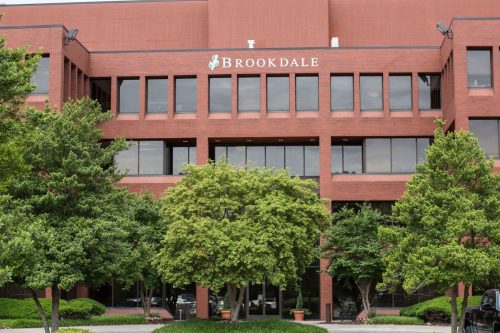Following several blockbuster transactions in recent years, senior housing deal volume has begun to decelerate—and buyers are finally wisening up to the ideal sizes their companies aspire to.
Specifically, various headwinds have caused assisted living deal volume to slow in recent months, but current valuations remain “really strong,” according to experts who spoke at the Post Acute Link Care Continuum Conference in Chicago on June 12.
Some of these headwinds have bedeviled health care real estate investment trusts (REITs) in particular, the panelists noted.
“Certain REITs [have had] big headaches to figure out,” Aaron Osmundson, a managing director at Denver, Colorado-based investment bank and financial advisory group Quadriga Partners LLC, said during a panel session. Among those headaches have been struggling skilled nursing portfolios that have led some major REITs to spin off or sell off these assets.
As such, REITs are acting more cautiously, Osmundson suggested.
“They don’t want another ‘oops’ to have to explain to investors,” Osmundson said.
Still, this doesn’t necessarily mean that it’s a bad time to consider a deal within the senior living market. After all, there are plenty of groups looking to buy, according to Zach Bowyer, a senior managing director at commercial real estate services and investment firm CBRE (NYSE: CBG).
“There just isn’t that much available right now, but what does come up on the market, there’s a lot of money chasing it,” Bowyer noted.
The trick to a healthy deal market, panelists agreed, lies in making sure that providers don’t get too big—an issue that has plagued both Brookdale Senior Living (NYSE: BKD) and Kindred Healthcare (NYSE: KND) in recent years, and arguably impacted the health of the senior housing industry as a whole.
Brookdale’s misguided ‘bragging rights’
In senior living, bigger is almost never better—and some of the industry’s largest players found that out the hard way.
“Ten years ago, it was all about being the biggest home health provider, the biggest skilled nursing provider,” Osmundson explained. “It was all about bragging rights. But they became too big to do anything.”
When Brookdale bought Emeritus Corp. in 2014, the resulting company had more than 1,200 buildings—which is simply too large, Osmundson argued.
“It’s too much to handle, and it just doesn’t work,” he said.
The Brookdale/Emeritus merger did spur further senior housing M&A, however, as Brookdale has increasingly turned to divestitures to make the company more workable, Osmundson said.
Ideally, senior housing companies should be big enough to dominant in their respective markets, yet nimble enough to adapt to change quickly and effectively, the experts agreed.
One of CBRE’s investor clients, for instance, doesn’t want to grow so large that it can no longer address issues quickly.
“If there’s ever an issue at a property, [they] want the CEO to know about it that day. And if that’s not possible, it’s too big to invest in,” Bowyer said of the client’s mindset.
Brookdale declined to comment for this article.
Trumpcare’s impact
The November 2016 election of President Donald Trump has, in some ways, thrown a wrench into the U.S. health care marketplace, as the nation remains unsure as to whether the Affordable Care Act (ACA) will be repealed, replaced, or both.
In senior living, however, not much has changed since Trump’s inauguration.
“We haven’t seen that much of an impact,” Bowyer said, before hinting that Trump’s impact on the senior housing deal market may be negligible for entirely different reasons.
“I mean, is he even going to be President tomorrow?” Bowyer asked.
Assuming that Trump indeed remains President, senior housing valuations aren’t likely to change.
“We think that Trump, for the most part, likes accountability and likes efficiency,” he said. “We’re not changing our valuations on account [of that].”
Trump’s election has ushered in a new level of uncertainty around health care that likely would not have existed if Hillary Clinton had won the presidency, Osmundson noted.
“Life would have been easier if Hillary would have been elected, for sure,” he said, adding that the “worst-case scenario” under Trump would be a block grant program for Medicaid, which he believes would lead to plenty of bankruptcies in skilled nursing.
Still, despite a great deal of uncertainty, the senior living space remains an attractive industry for sellers and purchasers alike.
“There’s still a ton of money, it’s still a great place to be,” Bowyer concluded.
Written by Mary Kate Nelson
Companies featured in this article:
Brookdale Senior Living, Care Capital Properties, CBRE, Kindred Healthcare Inc., Quadriga Partners LLC, Ventas Inc.


